Global Growth Agendas: Regions, Institutions and Sustainability – Piacenza, Italy
- Plenary 1 (Professor John Helliwell, Vancouver School of Economics, University of British Columbia, Vancouver, Canada)
- Plenary 1 (Professor Filomena Maggino, Florence University, Italy)
- Plenary 1 (Professor Philip S. Morrison, Victoria University of Wellington, New Zealand)
- Plenary 2 (Professor Stefano Zamagni, University of Bologna, Italy)
- Plenary 3 (Professor David Audretsch, Indiana University, USA)
- Plenary 3 (Professor Roberta Capello, Politecnico di Milano, Italy)
- Plenary 4 (Rob Vos, Food and Agriculture Organisation of the United Nations, Italy)
- Plenary 4 (Nicholas Martyn, Deputy Director-General DGA1 Policy, Performance and Compliance, Brussels)
Plenary 1
Professor John Helliwell, Vancouver School of Economics, University of British Columbia, Vancouver, Canada
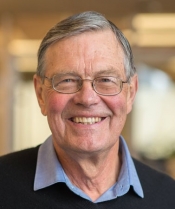
John F. Helliwell is Senior Fellow of the Canadian Institute for Advanced Research and co-director (with George Akerlof) of CIFAR's program on “Social Interactions, Identity and Well-Being”. He is also Professor Emeritus of Economics at the University of British Columbia, a member of the National Statistics Council, and a Research Associate of the National Bureau of Economic Research. He was previously visiting special advisor at the Bank of Canada in 2003-04, visiting research fellow of Merton College, Oxford, in 2003, of St. Catherine's College, Oxford, in 2001, and Mackenzie King Visiting Professor of Canadian Studies at Harvard in 1991-94. His books include How Much Do National Borders Matter? (Brookings Institution, 1998), The Contribution of Human and Social Capital to Sustained Economic Growth and Well-Being (OECD and HRDC, 2001), Globalization and Well-Being (UBC Press, 2002, also as Mondialisation et bien-être, Les Presses de l'Université Laval, 2005), The Science of Well-Being (Oxford University Press, 2005), Well-Being for Public Policy (OUP, with Diener, Lucas and Schimmack, 2009), International Differences in Well-Being (OUP, edited with Diener and Kahneman, 2010), and the World Happiness Report (edited with Richard Layard and Jeffrey Sachs for the April 2, 2012 UN meeting on Happiness) . Recent articles include “Well-Being, Social Capital and Public Policy: What's New?” (Economic Journal, March 2006), “Well-Being and Social Capital: Does Suicide Pose a Puzzle?” (Social Indicators Research, 2007), “How's Your Government? International Evidence Linking Good Government and Well-Being.” (joint with Haifang Huang, British Journal of Political Science 2007), “The Social Context of Well-Being” (joint with Robert Putnam) in Huppert, Bayliss and Keverne, eds, “Measuring and Understanding Subjective Well-Being” (joint with Christopher P. Barrington-Leigh, Canadian Journal of Economics 2010) and “Trust and Well-Being” (joint with Shun Wang, International Journal of Wellbeing 2011). He is a Fellow of the Royal Society of Canada and an Officer of the Order of Canada.
Plenary 1
Professor Filomena Maggino, Florence University, Italy

Professor of Social Statistics and Multivariate Statistical Analysis.
Coordinator of the International Master II level “QoLexityMeasuring, Monitoring and Analysis of Quality of Life and Its Complexity” (University of Florence).
Her main research interests concern: (i) date of production (in Particular, subjective assessment date), (ii) data analysis (in Particular, and multivariate dimensional analysis, scaling models and construction of composite and synthetic indicators), and (iii) the date presentation and dissemination (with Particular reference to defining a model Aimed at Assessing the quality of communication in statistics). Main field of application is quality-of-life and wellbeing measurement and analysis.
Author of many publications on Those topics.
- President and co-founder of the Italian Association for Quality-of-Life Studies (AIQUAV)
- Past-president of the International Society for Quality-of-Life Studies (ISQOLS)
- Editor-in-Chief of the journal Social Indicators Research (Springer)
- Component of the Global Project on Measuring the Progress Research Network (established at OECD)
- Component of the Scientific Committee for the Measurement of Wellbeing (Scientific Commission for the measurement of well-being) established at Italian National Institute of Statistics (ISTAT – BES project)
- Component of the Expert Group on Quality of Life, established at Eurostat – European Commission
- Component of the Expert Group on “European Research Area” Survey, established at the Directorate-General for Research and Innovation – European Commission
She cooperates with and is advisor of the Italian National Institute of Statistics (ISTAT) with reference to quality-of-life and wellbeing issues.She is member of several international associations, many scientific journals' editorial boards, scientific committees and session organizer / chair Numerous of international conferences.
Plenary 1
Professor Philip S. Morrison, Victoria University of Wellington, New Zealand
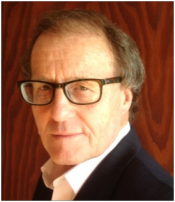
Professor of Human Geography in the School of Geography, Environment and Earth Sciences, Victoria University of Wellington, New Zealand. Section editor for the International Journal of Wellbeing and co-founder of the Wellbeing and Public Policy international conference series, New Zealand Geographical Society Distinguished Geographer 2013 and member of ISQOLS.
Philip is an urban geographer whose research interests embrace subjective wellbeing, urban and regional growth, labour and housing markets: https://www.victoria.ac.nz/sgees/about/staff/philip-morrison
Three relevant publications include:
- 2014 “The measurement of regional growth and wellbeing” Chapter 15 in HANDBOOK OF REGIONAL SCIENCE Editors (M. Fischer and P. Nijkamp) Springer Verlag. Pp: 277-289 Springer Heidelberg New York Dordrecht London
- 2012 (with Dan Weijers) “Wellbeing in Wellington: a report on the June 2012 Wellington Wellbeing and Public Policy conference” THE POLICY QUARTERLY Vol 8, Issue 4, November pp:51-55
- 2010 “Local expressions of subjective wellbeing: the New Zealand experience” REGIONAL STUDIES 45(8): 1039-1058
Plenary 2
Professor Stefano Zamagni, University of Bologna, Italy
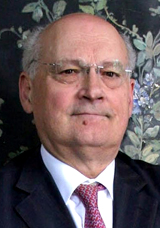
Full Professor of Economics at the University of Bologna, Faculty of Economics and Adjunct Professor of International Political Economy, Johns Hopkins University, Bologna Center. He graduated from Catholic University in Milan in 1966 and from 1969 to 1973 he spent a research period in Oxford at Linacre College. Prof. Zamagni was a member of the Executive Committee of International Economy Association (1989-1999) and the Steering Committee of Pontifical Academy of Social Sciences. Since 1991 he is a member of the Pontifical Council on Justice and Peace. He is a Fellow of the Academy of Sciences of Milan, the Academy of Sciences of Bologna and the Academy of Sciences of Modena. Fellow of the New York Academy of Sciences, New York. He was President of ICMC from 1999 to 2007 (an NGO based in Geneva dealing with migrant and refugee issues) and fellow of the Human Development and Capability Association (Harvard University). He was appointed (2007) President of the Italian Commission for Non Profit sector, Milan. Member of the Advisory Board of EURICSE, Trento. He is a member of the scientific committee of various economic journals and reviews. Author of several books and papers published in professional journals.
Plenary 3
Professor David Audretsch, Indiana University, USA
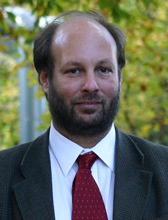
David Audretsch is a Distinguished Professor and Ameritech Chair of Economic Development at Indiana University, where he is also serves as Director of the Institute for Development Strategies. He also is an Honorary Professor of Industrial Economics and Entrepreneurship at the WHU-Otto Beisheim School of Management in Germany. In addition, he serves as a Visiting Professor at the King Saud University in Saudi Arabia, Honorary Professor at the Friedrich Schiller University of Jena in Germany, and is a Research Fellow of the Centre for Economic Policy Research in London.
Audretsch's research has focused on the links between entrepreneurship, government policy, innovation, economic development and global competitiveness. His research has been published in over one hundred scholarly articles in the leading academic journals. His books include Entrepreneurship and Economic Growth, with Oxford University Press in 2006 and The Entrepreneurial Society, also with Oxford University Press in 2007. He is co-founder and co-editor of Small Business Economics: An Entrepreneurship Journal. He was awarded the 2001 Global Award for Entrepreneurship Research by the Swedish Foundation for Small Business Research. In 2008, he received an honorary doctorate degree from the University of Augsburg, and in September, 2010 he received an honorary doctorate degree from Jonkoeping University.
He is a member of the Advisory Board to a number of international research and policy institutes, including the Deutsches Institut fuer Wirtschaftsforschung (German Institute for Economic Analysis), the Basque Institute for Competitiveness, and the Swedish Entrepreneurship Forum.
Plenary 3
Professor Roberta Capello, Politecnico di Milano, Italy
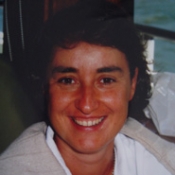
More details to follow
Plenary 4
Rob Vos, Food and Agriculture Organisation of the United Nations, Italy
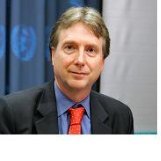
More details to follow
Plenary 4
Nicholas Martyn, Deputy Director-General DGA1 Policy, Performance and Compliance, Brussels
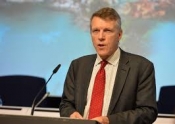
Nicholas Martyn took a first degree in history at Cambridge University, followed by law. After qualification, he practiced as a lawyer in England for 10 years. Since 1988 he has worked as a civil servant in the European Commission in Brussels. He has during his career with the Commission worked as a lawyer in the area of agriculture, held posts relating to financial control and audit, and for the last fifteen years worked in the Directorate-General for Regional and Urban Policy. He was director of audit for 5 years, and subsequently director of a geographic directorate responsible for the management of programmes in six Member States. In 2011 he was appointed Deputy Director-General, and he has responsibility for performance, policy and compliance. As DDG, he had particular responsibility for the preparation and negotiation of the legislative package for Cohesion Policy for the 2014-2020 period.